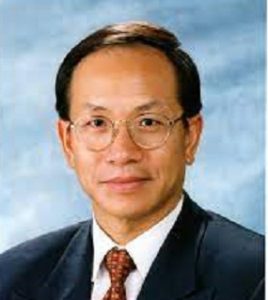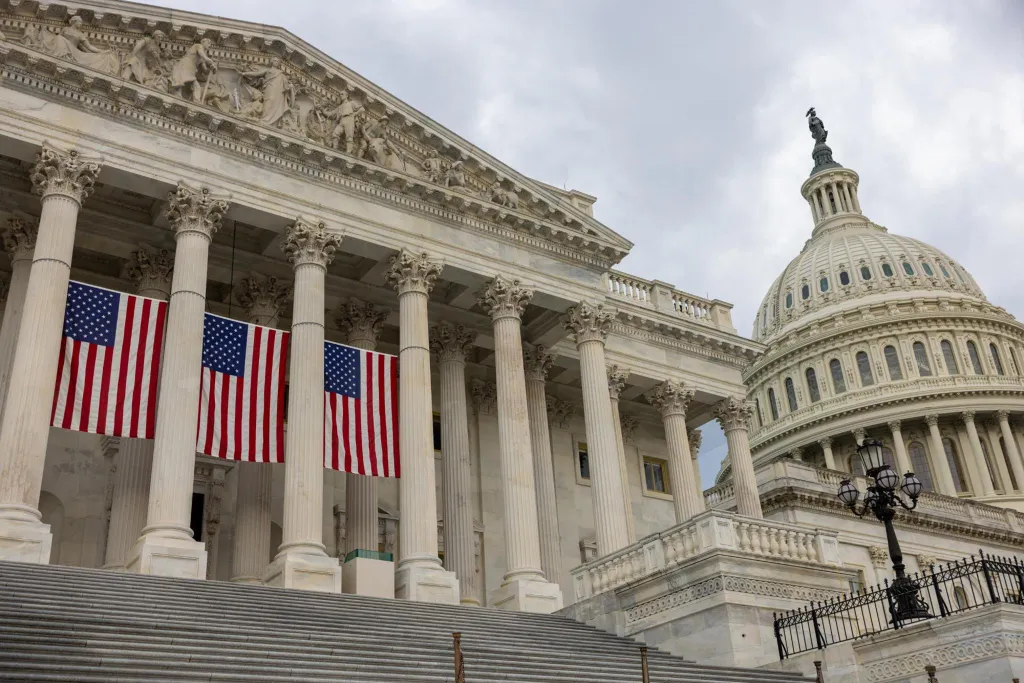America needs to reform its double-standard binary-mindset and its “military-industrial complex” for the sake of better US-China relations, its global leadership, and world peace.
The 2024 Munich Security Conference recently ended with a palpable mood of pessimism, if not despair, among high-level European attendees, uncertain and worried about America’s ability to lead a fracturing world , not to mention the looming return to the White House of an iconoclastic Donald Trump, who recently threatened to turn NATO into a mafia-like payment-for-protection racket.

Apart from questions of America’s enduring ability, or largesse, to hold the fort in Europe, questions are being raised about the increasingly-transparent double standards of the “City Upon a Hill”, which was cited by America’s forefather John Winthrop and is often invoked to denote “exceptionalism” of American power founded on “universal” human values and principles for others to follow.
I, for one, was a great fan of the United States during the late ’50s. With rudimentary command of English, I read a Chinese translation of The Little House on the Prairie from the now-defunct United States Information Agency Library in the Macao of my boyhood days.
In the summer of 1990, my faith in America was manifested when, as an “International Visitor” invited by the U.S. government, I shared my outlook on China post-1989 with some Fortune-50 captains of industry, including Steve Forbes personally.
In recent years, and months, however, my faith has almost been completely shattered as American double-standards have become breathtakingly transparent.
President Biden’s attempt to restrain Israeli Prime Minister Netanyahu’s military excesses struggles against an influential “Jewish lobby”, supported by an entrenched “military-industrial-complex” forewarned in former President Eisenhower’s 1961 Farewell Address. The complex has since become well oiled by what award-winning New Yorker journalist Jane Mayer calls “Dark Money” in her 2016 best-selling book.
Today, the United States remains the indispensable backer of Israel’s all-out brutal operations to eliminate Hamas in pursuit of “total victory”, oblivious to the heartbreaking humanitarian crisis of biblical proportions and regardless of attempts for a sustainable long-term “Two States Solution” for Palestine. Following the latest Rafah incursions, some 1.3 million Gaza citizens remain trapped in need of water, food, and medical care, including many innocent women and children.
In Europe, regardless of whys and wherefores, the biggest beneficiary of the protracted Ukraine war against Russia has been the United States, at the expense of much Ukrainian bloodshed and devastation. America’s giant military suppliers are reporting over-sized profits. As tremors of the Ukraine war and an over-hyped “Russo-phobia” spread, European funds have been flowing to the United States and the dollar, seeking safe haven. America’s financial giants Blackrock and JP Morgan are helping Kyiv to raise massive funds for its Reconstruction Bank.
Ukraine is but the latest of a long saga of US-led catastrophic and unproductive wars at the cost of millions of innocent people dead or homeless, now gradually forgotten. Witness America’s ignominious retreat from Afghanistan, handing over to an oppressive Taliban government. The preceding ruinous Iraq war proved to have been waged on trumped-up charges of “weapons of mass destruction”. A 2015 report found that since its founding in 1776, America has been at war in 222 out of 239 years, befitting the “war-mongering’’ epithet.
While justification for most of these endless wars was carefully nuanced, the irony of double standards reached a new height when the Biden re-election campaign decided to use TikTok. The China-affiliated short-video-clip social media platform is hugely popular amongst young people across the globe but recently banned by the US government for fear of unproven “national security risks”.
For a third time, citing alternative reasons, America has blocked a widely-supported United Nation motion for an immediate humanitarian ceasefire over Gaza.
According to an online think-piece dated 3 November in Time Magazine, America’s increasingly transparent double standards are losing the Global South, including many nations friendly to the United States.
Contributions of Global South countries to global GDP expanded from 19% in 1990 to 42% in 2022. Their growing gravitas has made them more confident in guarding their own sovereignty and development interests. Hedging against American hegemony, a growing number has applied to join the BRICS (Brazil, Russia, India, China, South Africa)-Plus grouping or the Shanghai Cooperation Organization (SCO) led by China and Russia. Over 3,000 cooperation projects have been signed with the Global South under China’s Belt and Road Initiative, involving close to 1 trillion U.S. dollars of investment, providing much-needed socio-economic infrastructure including schools, hospitals, power-plants, highways, railways, bridges, pipelines, and ports.
What is more, America has succeeded unwittingly in pushing Russia, China, and Iran closer together into an informal “anti-hegemonic alliance”, as forewarned by the late Zbigniew Brzeziński, a doyen of American foreign policy, in his 1998 seminal book The Grand Chessboard.
The United States’ increasingly transparent double standards continue to weaken its global credibility and influence. The root cause, however, is a deep-seated binary “black-or-white, with-us-or-against-us, win-or-lose” mindset, unable to master the fine art of achieving “harmony despite differences” (和而不同) cherished in Chinese philosophy.
Similar to individual families, each country’s unique geographical, historical, political, cultural, socio-economic, and security characteristics often belie a one-size-fits-all common yardstick for passing judgments on political legitimacy or behavioral correctness, save in the most extreme circumstances. Rather than coercive tactics, quiet dialogue for constructive solutions often pays better dividends.
What is more, while competition is inevitable and necessary to spur progress, it can be healthy as in the Olympic Games. It doesn’t have to be a dirty gang fight or mortal kombat.
Specifically, in a closely interconnected and interdependent world, all-out across-the-board tariffs are self-damaging. So would attempts to compartmentalize the world under a “de-risking” banner of “small yard with high fence”. These tactics are much less productive than frank discussions for mutually-agreed solutions to legitimate economic and security concerns.
Similar considerations apply to current US-China tensions over the South China Sea, Taiwan, trade, technology, military development, intellectual property, market reciprocity, human rights, long-term development, geopolitics and more.
Indeed, more cooperative dialogues on a wider front, where necessary, behind closed doors, would lower tensions and set in train a “virtuous spiral” of mutual trust-building. So would mutually-beneficial projects on green energies such as smart grids and joint initiatives to help low-lying island nations to combat rising sea-levels due to Climate Change.
This is why at their Munich Security Conference bilateral meeting on 16 February, Foreign Minister Wang Yi reminded Secretary of State Antony Blinken of “the principles of mutual respect, peaceful coexistence and win-win cooperation”, “taking an objective and rational view of China’s development” to pursue a positive and pragmatic China policy honoring President Biden’s commitments to President Xi in San Francisco last year.
In a newly upended and unstable world, it’s about time for America to reconfigure its mindset and behavior in the interests of healthier US-China relations as well as sustainable world peace and prosperity.
Author: Andrew KP Leung – International and Independent China Strategist. Chairman and CEO, Andrew Leung International Consultants and Investments Limited. He previously served as director general of social welfare and Hong Kong’s official representative for the United Kingdom, Eastern Europe, Russia, Norway, and Switzerland.
(The views expressed in this article belong only to the author and do not necessarily reflect the editorial policy or views of World Geostrategic Insights).
Image Credit: Twitter / @SpeakerMcCarthy







